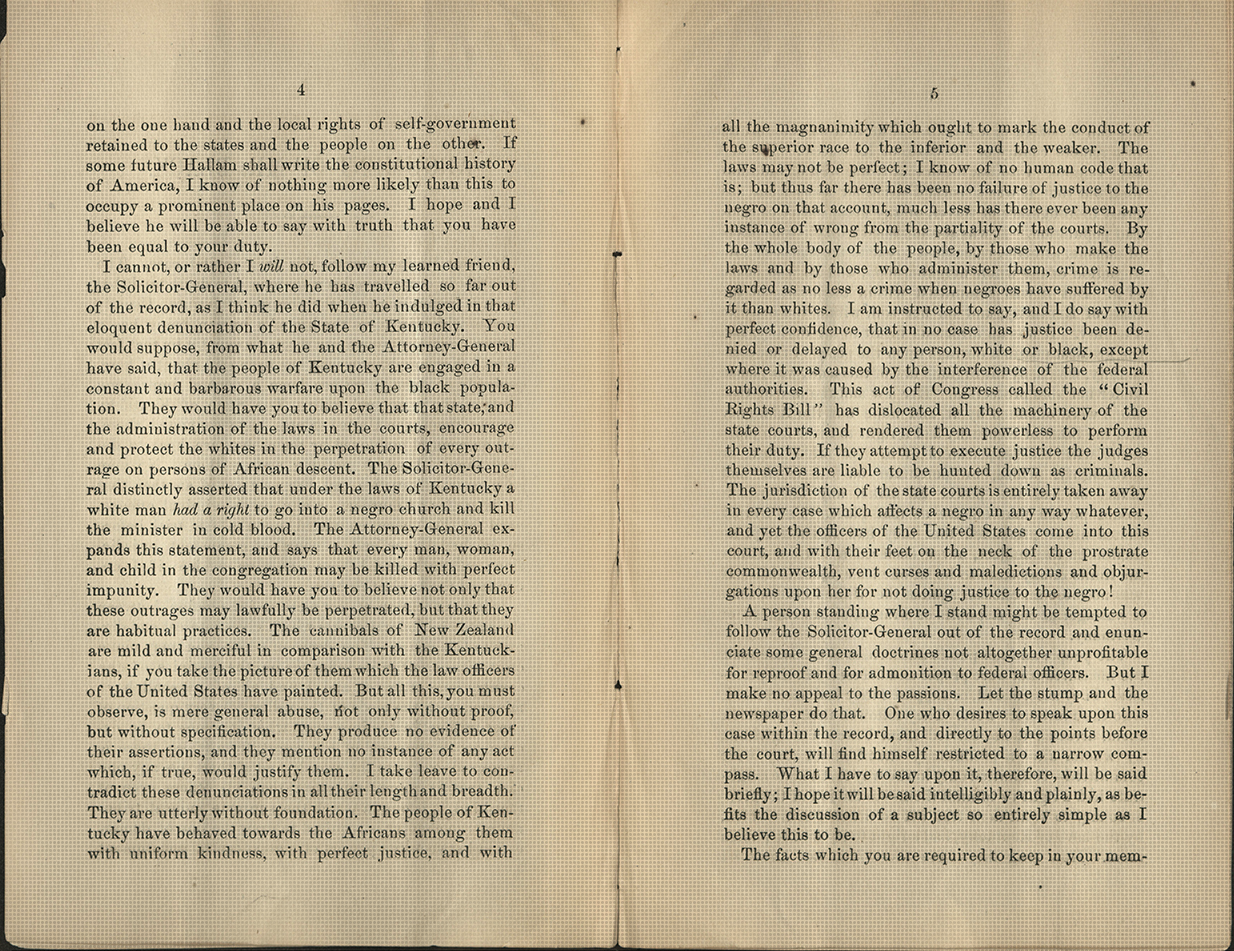J. S. Black
United States vs. Blyew et al., for Murder. Constitutionality of the Civil Rights Bill
(Washington, 1871).
United States vs. Blyew (1872) was an early Supreme Court interpretation of the federal Civil Rights Act of 1866. In 1868, four members of the African American Foster family – Jack, Sally, Lucy and Richard – were brutally massacred by John Blyew and George Kennard in Kentucky, in racially-motivated crimes. Despite a Kentucky law preventing African Americans from testifying against whites, and an all-white jury (established by law), the federal circuit court in Kentucky found the men guilty and sentenced them to death. Under the Civil Rights Act, the testimony of a surviving family member and the dying statement of Richard Foster were permitted.
Kentucky appealed the decision to the Supreme Court, which found that the Civil Rights Act only protected defendants, not victims or witnesses, in cases involving racial discrimination. The Kentucky legislature then repealed the law preventing testimony against whites, and the men were re-indicted. Blyew escaped and Kennard, after being sentenced to hard labor, was pardoned in 1885. Blyew was imprisoned in 1890, but pardoned in 1896.




